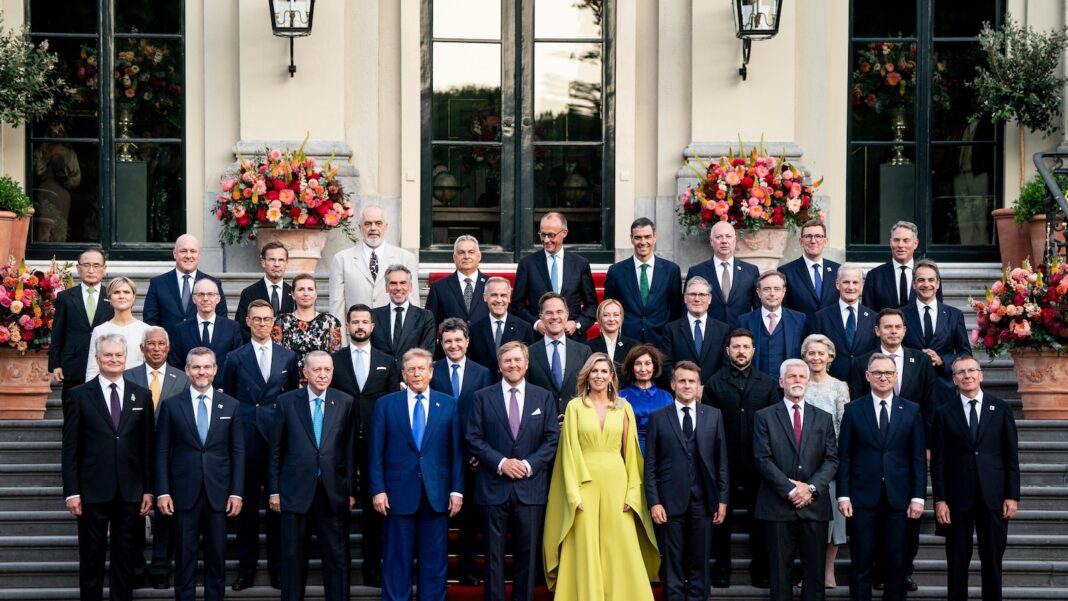[ad_1]
A controversial tax being proposed by President Donald Trump’s administration that could cost Canadians and Canadian businesses billions is also likely to cost the U.S. government, according to an assessment by a non-partisan U.S. congressional office.
It is also likely to cost American companies by prompting investors from countries hit with the tax to move investments out of the U.S, according to the assessment.
Dubbed the “revenge tax,” Section 899 of Trump’s One Big Beautiful Bill Act calls for a new withholding tax to be imposed on investment income paid out by American companies to investors who live in countries the U.S. government considers to have unfair or discriminatory taxes.
Canada’s digital services tax, which hits companies like Amazon, Google, Meta, Uber and Airbnb with a tax on revenue from Canadian users, is among the taxes the U.S. considers discriminatory.
Top Canadian officials acknowledge privately that they are concerned by the prospect of Trump’s new withholding tax and are closely watching what is happening in Washington — as are Canadian investors, companies, investment advisors and tax lawyers.
Digital services tax in crosshairs
Federal Finance Minister François-Philippe Champagne says he’s standing by the tax — which has its first big payment due June 30.
“The DST is in force and it’s going to be applied,” he told reporters on Parliament Hill last week.
Two different versions of Section 899 are currently before Congress, but both versions risk hitting Canadians and Canadian companies with a new withholding tax.
The version adopted by the House of Representatives would take effect quickly and impose a five per cent withholding tax on things like dividends to Canadians from U.S. companies, adding another five per cent each year to a maximum of 20 per cent.
An amendment to that section, currently before the Senate, would delay the tax until 2027 and would top it out at 15 per cent. The Senate has not yet voted on the bill, although it is being pressured by Trump to approve the legislation by July 4, the U.S. national holiday.
A study of Section 899 by the U.S. Congress’s non-partisan Joint Committee on Taxation (JCT), which performs a function similar to Canada’s Office of the Parliamentary Budget Officer, predicts that the new tax would initially bring billions into the U.S. Treasury. However, it also predicts those revenues would then start to decline — and that by 2033 or 2034 it would actually lead to a drop in revenue.
The version of Section 899 adopted by the House of Representatives is expected to rake in an estimated $116.3 billion US between 2025 and 2034 for the U.S. Treasury, with $12.5 billion US in 2026 rising to $28.7 billion US in 2027 and $31.8 billion US in 2028.
However, the analysis projects that revenues would then start to decline. By 2033, the withholding tax is projected to cost the U.S. Treasury $4.8 billion US in lost revenue and, by 2034, $8.1 billion US.
The amended version of Section 899 is projected to bring in only $52.2 billion US between 2025 and 2034. But by 2034 it too would cost the U.S. government $2.5 billion US in lost revenue.
A source familiar with the JCT’s work said its analysis assumes that the U.S. gross national product will remain fixed and foreign laws, like the DST, will not change. What it assumes will change, however, is the behaviour of individuals and companies to avoid the withholding tax.
The JCT projects that the reduction in demand for direct and portfolio investment on the part of foreign investors will reduce the value of U.S. assets. In turn, that drop in value will lead to a loss in tax revenue for the U.S. Treasury.

David Macdonald, senior economist with the Canadian Centre for Policy Alternatives, said the JCT’s analysis makes a very big assumption — that countries like Canada won’t hit back at the U.S. with their own retaliatory taxes.
He said the ongoing trade war has shown that Canada is willing to hit back.
Should Canada retaliate, Macdonald said the U.S. is more exposed than Canada on the tax front because a lot of American companies operate here.
“They make a lot more profits in Canada than Canadian companies make in profits operating in the U.S.,” Macdonald said.
Macdonald agreed with the JCT’s assessment that the withholding tax could prompt an exodus of investment in U.S. securities, predicting that many companies are probably already figuring out ways to hedge their investments.
He said this is bad for business and risks damaging the economies of both countries.
“Nobody wins a trade war and nobody wins a tax war,” said Macdonald.
[ad_2]
Source link





